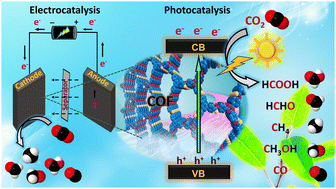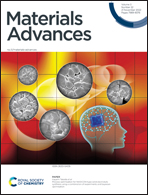Recent trends in covalent organic frameworks (COFs) for carbon dioxide reduction
Abstract
As the ultimate carbon emission product of the combustion process, carbon dioxide (CO2) is a serious environmental threat in increasing the global climate temperature through the greenhouse effect. Porous heterogeneous catalysts have attracted much attention for carbon capture and in the recent past; they have witnessed significant advancements in their design and implementation for the CO2 capture and conversion. In this context, covalent organic frameworks (COFs), a kind of porous crystalline polymeric material, are mainly constructed by organic module units connected with strong covalent bonds. COFs, possessing unique properties such as low-density, large specific surface area, high thermal stability, and developed pore-structure and the long-range order, good crystallinity, and excellent tunability of the monomer units find versatile applications ranging from adsorption and separation, sensing, catalysis, optoelectronics, energy storage, and mass transport. In this review article, we discuss the emerging developments in different types of covalent organic frameworks (COFs) as heterogeneous catalysts for CO2 reduction via photochemical, electrochemical, and photo coupled electrochemical pathways. The physicochemical properties of COFs and their influence on the efficiency, selectivity, and recyclability for CO2 reduction are enlightened systematically. This review provides a concise report on various types of COFs, current trends, their application in CO2 reduction for the synthesis of fuels and value-added fine chemicals, and future research directions for the deployment of COF catalysts in CO2 capture and reduction.

- This article is part of the themed collection: Recent Review Articles


 Please wait while we load your content...
Please wait while we load your content...